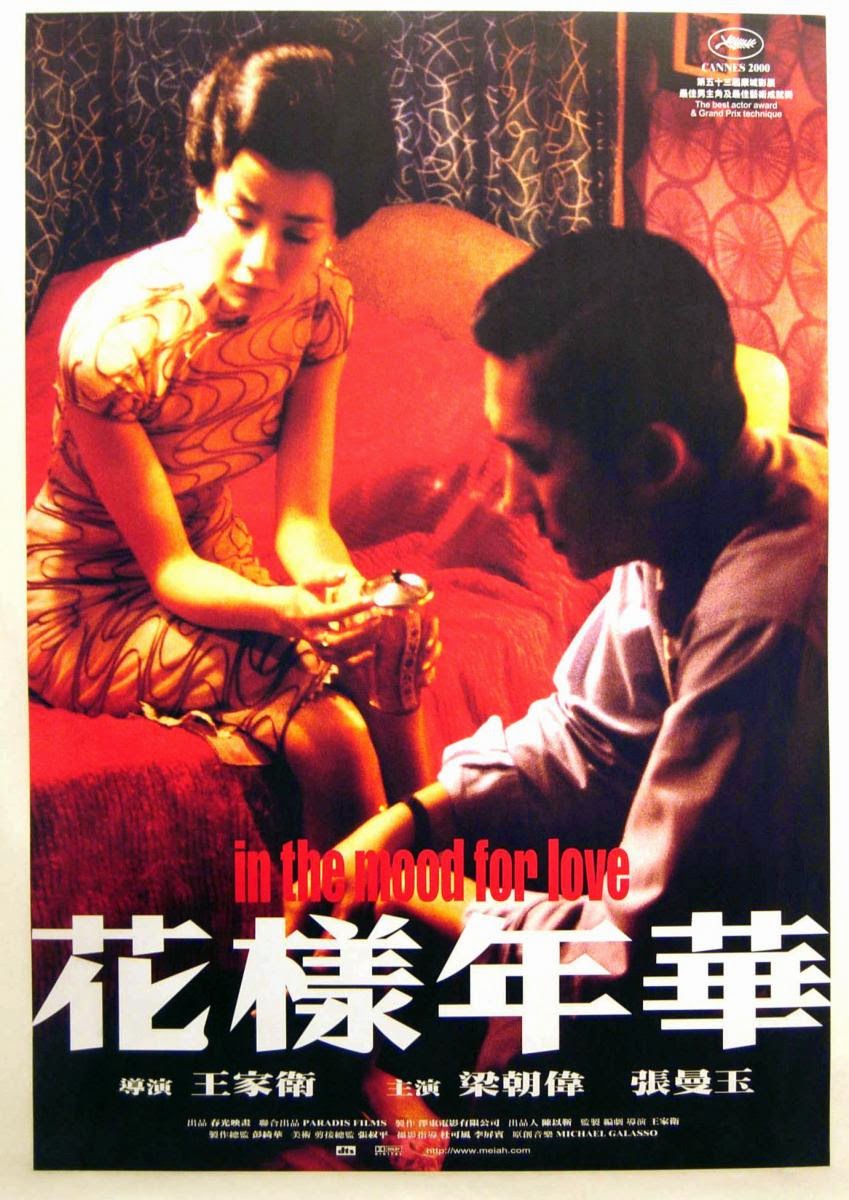Film Review: In the Mood for Love (2000)



In the Mood for Love is a welcomed change in the enormous catalog of films about adultery. In it, the leads (the extremely wonderful Maggie Cheung and Tony Leung) are not the cheaters, as is usually the case—they are the cheated on. There is no revenge dalliance, bitterness, or rock bottom. There’s no third act catharsis either—just life, its secrets, and its continual motion. It’s not a depressing film, but it probably won’t leave you in very high spirits either. It’s an honest film with honest protagonists—so honest they wind up missing out on what it is they may truly want.

Set in 1962 Hong Kong, In the Mood for Love is all style. Mr. Chow (Leung) and Mrs. Chan (Cheung) often seem overdressed for the meager neighboring apartments they live in with their spouses and landlords. Mr. Chow wears suave suits and fashionable ties to his newspaper job, while Mrs. Chang goes out for noodles dressed in the height of ‘60s elegance. They look good, but despite this outward glamour, their personal lives are failing. This realization—and the loneliness it produces—bring these “other halves” together. The relationship produced isn’t one of romance, but one of a need for understanding and consolation.

My favorite scene in the film is when the abandoned partners have dinner together for the first time. She compliments him on his tie, he on her handbag. Through their wordplay and beating around the bush, it’s discovered that their spouses are two-timing with each other and that their choice in gifts is as flagrant as the affair. It’s the audacity that troubles them the most, perhaps. Mr. Chow and Mrs. Chan’s comforting liaisons are kept discreet and secret. Their opposites offer no such consideration.

Director Wong Kar-Wai paints a polished picture of understanding infidelity and its causes. Mr. Chow and Mrs. Chan reenact how they think their cheating mates may have met and what may have been said, with each correcting the other on nuances of speech. Later, Mrs. Chan rehearses confronting her husband but can’t seem to get it quite right. There’s a stiffness to it—a detached air as if she’s going through the motions. It seems neither is prepared to stand up for themselves. Despite the natural romance building between them, to give into it would somehow allow the others to win. “You notice things if you pay attention,” Mrs. Chan says—and she’s right. There’s a lot to see, and there’s a lot left unsaid.

The clothing, the cigarettes, and the tight, crowded, claustrophobic spaces might suggest Film Noir, but In the Mood for Love is closer to Goddard and Breathless (1960) than Lang or Wilder. The cinematography has a developed Noir edge to it—with plenty of well-placed shadows and careful framing—but the editing screams French New Wave (albeit with a modern touch). Jump cuts are common but not always used to their fullest capacity, resulting in a slight disconnect. This is by no means a killer, mind you, as they are still very cool—just not quite as cool as Goddard’s.

Also like Noir, adultery is a prevailing theme, but with a sigh of relief, it’s explored in a completely different way. In a lesser work, the jilted lovers would likely have jumped headlong into a torrid and forbidden romance, been ripped apart by societal expectations inevitably resulting in a loud declaration of love (possibly taking place in the rain, or some such thing). That’s what I was expecting anyway. Thankfully, that’s not what I got. I absolutely love it when my presumptions are subverted like that—and with such grace and style.

I wouldn’t call In the Mood for Love a romantic film, even though it centers on a timid, touching, and slowly built one. It’s more about embarrassment and understanding than passion, but its chemistry is undeniable and its style is fantastic. It’s a cool film, but not in any sort of trendy or hip way. It’s too human and mature for that.
